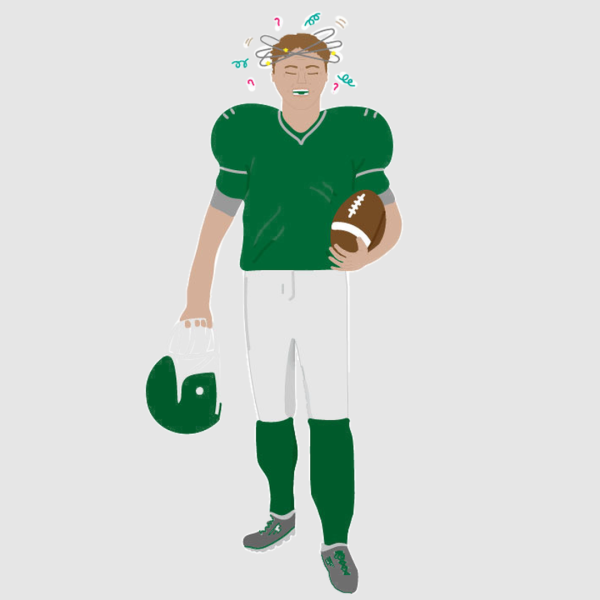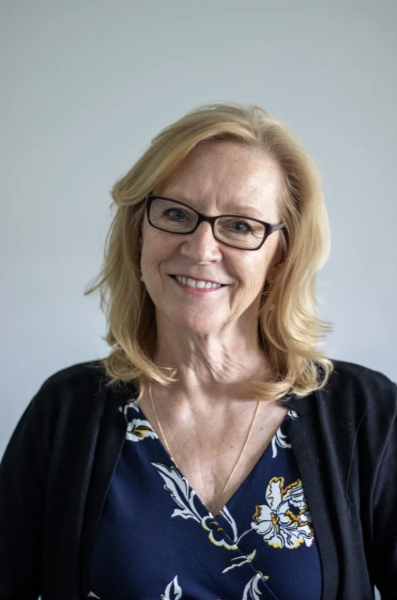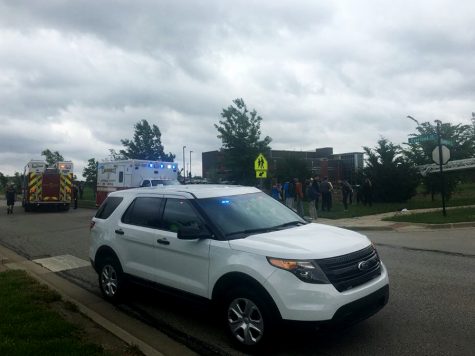Pivotal moments change students’, teacher’s lives
Ana Donley
A year ago, someone walking around the Church of Jesus Christ of the Latter Day Saints would have seen senior Anastasia Donley seated in the pews. Now, on Sundays she foregoes her spot, a signal she’s turned 18 and gained religious autonomy.
“My parents are married, but my dad’s not a member and my mom is,” Donley said. “They have the rule that you have to stay with [the church] until you turn 18. Technically, it’s 18 and ‘til the summer and you’re out of the house. But I’ve caused too many problems for [my mom] within the church so she was like ‘18: you can be done.’”
After being a member of the Mormon church her whole life and being enrolled in gender specific classes within the church for about two years, Donley began to question the principles the church taught her.
“When I was around 14 I just decided that I didn’t really like what I was learning and it wasn’t really for me,” Donley said.
It was the suggestions on how to act, what clothes to wear and what to eat and drink that compelled Donley to break away from the church she had been raised in.
“I didn’t like people trying to fit me in a box,” Donley said. “Some of the ideas they had about being a woman or how you should behave based on your appearance or what you should do with your life based on your sex isn’t something I think people should be subjected to.”
Although she could understand the appeal for some, Donley felt the church didn’t allow her the freedom her independent personality desired.
“Every religion is for certain people, but they were just a little old fashioned in their belief that ‘You’re always modest,’” she said.
Additionally, the church suggests its members don’t pierce their ears, get tattoos or drink caffeine.
“I love tea, and you’re not supposed to have that!” Donley said.
When she heard an idea she didn’t agree with, Donley wasn’t afraid to stand up for what she thought was right.
“Everyone was really polite, most of the time,” she said. “Sometimes I would get in trouble if I was being a little too ‘outspoken.’ My mom would sometimes tell me to reign it in.”
Although Donley tried to listen to leaders in her church, she had a difficult time combining the ideals in her head with the ideals of the community around her.
“I had some talks with some of my youth leaders about my opinions and about my statements and how to put that aside just to get on with the classes,” Donley said. “But I couldn’t really do that, because it was the same idea being taught to me the whole time.”
Although she might not have been able to set her personal beliefs aside, Donley was able to recognize everyone was entitled to their own opinion.
“If anything, it opened up my mind, and made me aware that just because I don’t get on with an idea doesn’t mean that other people don’t as well,” she said. “I know there are some people that do love the religion. I promise the Mormon Church isn’t that bad, it just wasn’t for me.”
While she may not have enjoyed every moment she was a part of the church, Donley does acknowledge she learned important lessons from being a member.
“I had been so against it for so long that while trying not to be what the church wanted me to be I became my own self,” Donley said. “If anything, it made me really strong. I’m just not afraid to be who I am and I’m really unapologetic about it. I like that that happened. I really like knowing who I am.”
Emma Johnson
Feb. 25, 2015 marked a pivotal moment in freshman Emma Johnson’s life. Johnson had an obsession with Ariana Grande that had stemmed from sixth grade.
After hearing Kansas City would be the first stop on Ariana Grande’s tour, Johnson’s mother knew she had to get her daughter tickets to not only the show, but to Grande’s meet-and-greet as well.
“My mom got [tickets] because she knew how much she meant to me,” Johnson said.
An avid listener of Grande’s, Johnson was inspired by the singers personality and talent.
“She inspired me to be a better person because she’s a really good person,” Johnson said. “[She also inspired me to] just go for what I want. And I like to sing, but I don’t think I’m good, but she makes me feel like I can do it if I want to.”
Even after her mom took her out of school and drove her to the venue, Johnson couldn’t believe the moment was real.
“It didn’t feel like it was happening,” she said. “We were in line waiting, and I didn’t feel like I was going to meet her so I was just standing there.”
Despite Johnson’s initial calm, one second changed it all.
“They pulled the curtain back for the person in front of me and I saw her hair and I instantly started sobbing,” she said.
Then, after hours of waiting, Johnson faced her idol.
“When I got my chance to meet her I hugged her and told her how much she meant to me and she was really nice,” she said. “It was really crazy. She’s prettier in person and she smelled really good.”
The meeting was short, but it was long enough that Johnson could snap a few pictures with Grande.
“I was crying in the pictures so they’re not cute,” Johnson added.
Although the moment was brief, it was a milestone for Johnson that she described as crazy, intense and awesome.
“Meeting her after having seen pictures of her for four years … kind of made me more obsessed with her,” she said.
Caleb Mercer
After having pains in his leg for a week, sophomore Caleb Mercer knew something was wrong. Although he initially thought it was a pulled muscle, the constant intense pain soon convinced him it was something more serious.
“I went back to my mom’s house and she took one look at me and said we’re going to the emergency room,” Mercer said.
After the visit to the hospital, Mercer learned what had really happened to his leg.
“I had osteomyelitis in my right femur and I also had a septic femur (basically fills with staph infection) and a foot long blood clot in my right thigh-which is still there,” he said.
He was admitted on July 4 to Children’s Mercy Hospital, where he stayed for two weeks.
“I was on 12 pills a day,” he said. “I had a central line in my arm and I would have to do this thing everyday, kind of like chemo. I had to get shots everyday in my stomach twice a day everyday. [I would] get so many it would bruise and [I’d] have to keep doing it in the bruises.”
During his first visit, he had a surgery to drain Mercer’s femur of infection.
When he was finally released, the infection and surgeries rendered Mercer wheelchair bound.
“When I got home I used a walker like an old person,” he said. “When I went anywhere I had to use a wheelchair. Your arms get really strong when you wheel yourself around but you find out there’s not a lot of wheelchair accessible places and it changes everything.”
In addition to navigating in the wheelchair, Mercer faced other struggles.
“It was definitely hard for my mom,” he said. “I had to relearn how to walk and it was very emotional.”
Mercer also had to learn how to communicate with friends and other people under his new conditions.
“It was difficult to incorporate myself into my friendships,” he said. “My “friends” didn’t really want to hang out with me because I was in a wheelchair, so I made new friends. It really showed a lot about the people I was hanging out with.”
After all this, Mercer learned the previous surgery to his leg had not been successful. The second time, he was subjected to two surgeries. Although they believe the surgeries were successful, Mercer is still affected by the pain.
“My leg aches sometimes and I have to wear a compression stocking ‘cause I have a blood clot still,” he said. “I get really dizzy and my foot swells up really big.”
Overall, it has permanently altered Mercer’s life.
“I don’t really remember much about myself before then,” he said. “It changed my personality.”
Mattithyah Bergersen
“I went from a normal high school student who was worried about classes and grades and involved in a million different sports and activities to being in constant pain and not being able to walk or open doors or jars or water bottles or write or sit or pretty much do anything,” Bergersen said.
There are varying theories over what causes the arthritis, but the cause is unknown.
“Something triggers it, and then it just starts,” she said. “Some people say genetics is involved and some people say it’s environment but they don’t really know.”
The autoimmune condition has changed the way Bergersen interacts with people due to the severe pain she feels.
“I can’t really be like a normal person who makes plans for their life and follows through,” Bergersen said. “I’m in pain 100% of the time for over most of my body for the last seven, eight years.”
The constant change has altered the way Bergersen interacts with people.
“It changes everything about your outlook, about how you interact with people,” she said. “I get really really grumpy sometimes because I’m in so much pain I don’t know how to communicate very well.”
Although communication can be hard at times, Bergersen has found solace through online communities. The groups are filled with people struggling with similar issues.
“I’ve discovered this community of people who deal with my illness, illnesses really similar to mine, and just chronic pain in general, online,” she said. “It never ceases to amaze me how strong it makes me feel to know that other people are going through the same thing.”
Although it’s altered how she operates day-to-day, Bergersen acknowledges there have been some benefits to the pain.
“I think it’s filled me with compassion towards people,” she said. “It made me realize how much is underneath the surface that you don’t see.”
Bergersen also believes it’s affected her teaching in a positive way.
“It made me more understanding when people come to me with issues because I’m like ‘I do, I do understand what that’s like,’” she said. “When I was going through college I was so appreciative of the professors who were willing to listen to me when I had a really bad semester healthwise.”
Bergersen, who had always planned on being a doctor, had to change her plans for her future after her arthritis emerged.
“Even after I got sick I kept thinking ‘oh, it’s just going to go away. I’ll just keep my life plans,’” she said. “The more I got into it, the more I was like ‘I really can’t make it through medical school, but I have this passion of teaching that I want to look into.’ I’m so thankful I’m a teacher. I love what I do, and while sure, I would have loved being a doctor too, it’s nice to have found a passion that will work with my illness.”
In addition to finding a passion through teaching, Bergersen has been able to reflect on herself.
“I would call it positive not because it itself is positive but because who I’ve become because of it is positive,” she said. “It’s been a good agent of change in my life even though it really really sucks. I’ve come to realize what matters most is who I am inside, not what I’m capable of doing. I may be held back by my illness but I’m still going to be the best person that I can out of that.”









